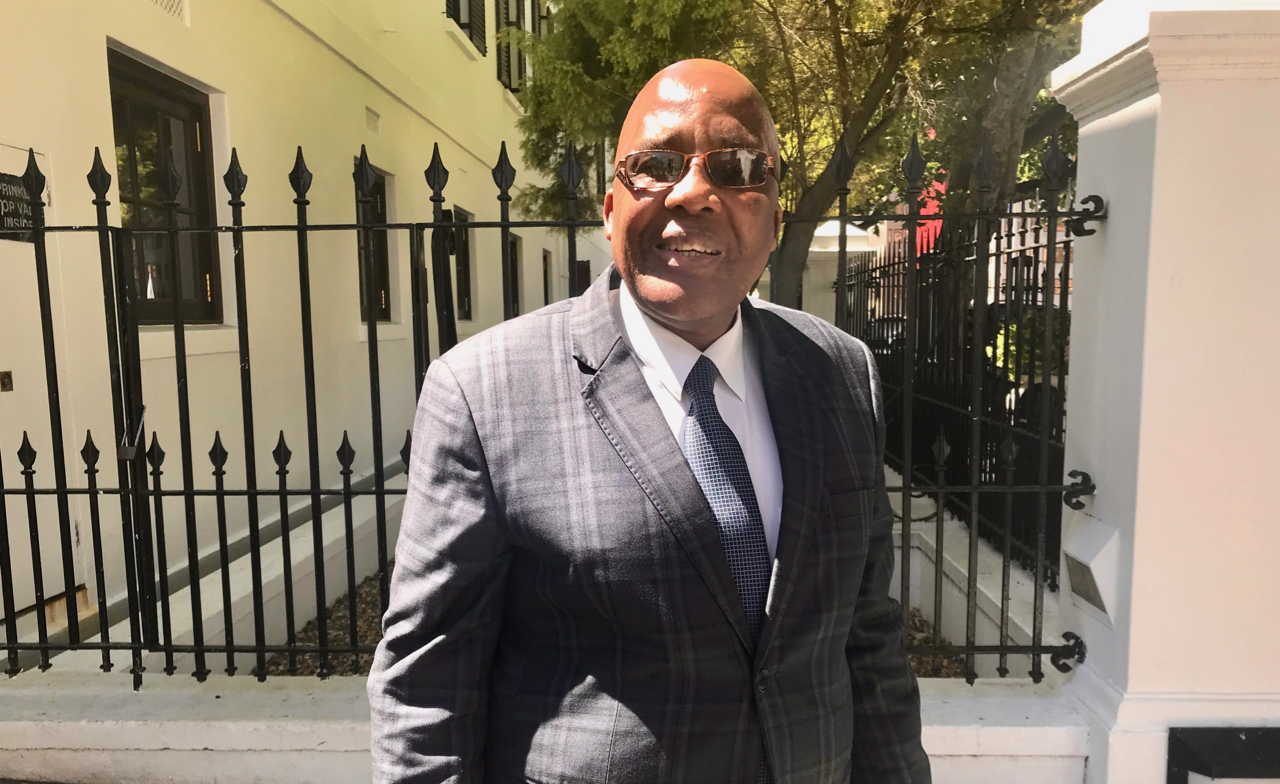Home Affairs minister takes Zimbabwean permit battle to the Constitutional Court
The High Court ruled against the minister and he failed in his appeal to the Supreme Court of Appeal

Minister of Home Affairs Aaron Motsoaledi has turned to the Constitutional Court in his bid to appeal against a Pretoria High Court judgment that found the process he used to end the Zimbabwean Exemption Permit programme was neither fair nor lawful. Archive photo: Tariro Washinyira
- Home Affairs Minister Aaron Motsoaledi is persisting with his court battle to scrap the Zimbabwean Exemption Permit programme.
- After losing in the High Court and failing at the Supreme Court of Appeal, he now seeks leave to appeal at the Constitutional Court.
- The termination of the programme affects 178,000 Zimbabweans who have been living lawfully in South Africa for more than a decade.
Home Affairs Minister Aaron Motsoaledi is continuing with his court battles to scrap the Zimbabwean Exemption Permit (ZEP) programme.
In June 2023, the Pretoria High Court ruled that the termination of the ZEP had been unlawful and unconstitutional.
The Supreme Court of Appeal then dismissed his appeal on the grounds that it had no prospects of success, but now the Minister has turned to the Constitutional Court, essentially on the same grounds, asking that it adjudicate over the issue.
In the application lodged in the apex court, Home Affairs director-general Livhuwani Tommy Makhode, who is the second applicant after the minister, wants leave to appeal against the whole June 2023 judgment of the Pretoria High Court, which ordered the minister to reconsider the termination of the programme and follow a fair, lawful and consultative process.
The Pretoria High Court then refused to grant leave to appeal.
Makhode submits the court erred by disregarding his affidavit as “impermissible hearsay” because it was not deposed to by the minister. Yet the court had not made such a finding in its main judgment.
“The ineluctable conclusion is that, although it did not expressly say so in the main judgment, it had disregarded the affidavit,” he said.
Makhode further contends that other grounds not considered by the Pretoria court, which had been “squarely raised”, were the separation of powers doctrine.
The court had got the notion of public participation wrong.
He said the Pretoria court had incorrectly agreed with the Helen Suzman Foundation that the minister ought to have consulted before the decision to terminate the programme was taken.
“Even if audi [hearing the other side] was a mandatory requirement, in this instance I am advised and submit that the full court erred and ought to have found that the representations considered after the decision were sufficient to render it both procedurally fair and lawful.
“The fact remains that the ZEP holders were all allowed to be heard, albeit after the decision was taken.”
Regarding the finding by the court that the minister had failed to consider the impact of the decision on the rights of ZEP holders and their children, Makhode said this was an error and would mean that the status of the permit holders could never be revoked or withdrawn in terms of the Immigration Act.
“The director-general states under oath that such rights were considered. Rights of children cannot (due to the nature of the decision) trump all other fundamental rights.”
He said the court should have found that the minister had discharged the onus to justify the limitation of ZEP holders’ rights. The minister had pleaded that conditions in Zimbabwe had improved to the extent that they could now return home.
Makhode submitted the issue was still a “live controversy” and the department was currently constrained from taking any action against those ZEP holders whose applications for renewal or extension have been unsuccessful.
“To date approximately 78,126 [of a total of 178,000 ZEP holders] have already applied for waivers and 10,427 have applied for other visas. The validity of their exemption permits has been duly extended; however, if their applications are unsuccessful, the order of the High Court prevents the minister from exercising powers conferred upon him by the Act.”
He said given the complexity, and constitutional matters raised by the appeal, and the public interest, leave to appeal should be granted.
The Helen Suzman Foundation and others are expected to oppose the application. They have until March 15 to file papers.
Support independent journalism
Donate using Payfast

Don't miss out on the latest news
We respect your privacy, and promise we won't spam you.
Next: Mbombela warned to fix water crisis as taps in several villages run dry
Previous: New Limpopo clinic has no running water
© 2024 GroundUp. This article is licensed under a Creative Commons Attribution-NoDerivatives 4.0 International License.
You may republish this article, so long as you credit the authors and GroundUp, and do not change the text. Please include a link back to the original article.
We put an invisible pixel in the article so that we can count traffic to republishers. All analytics tools are solely on our servers. We do not give our logs to any third party. Logs are deleted after two weeks. We do not use any IP address identifying information except to count regional traffic. We are solely interested in counting hits, not tracking users. If you republish, please do not delete the invisible pixel.
